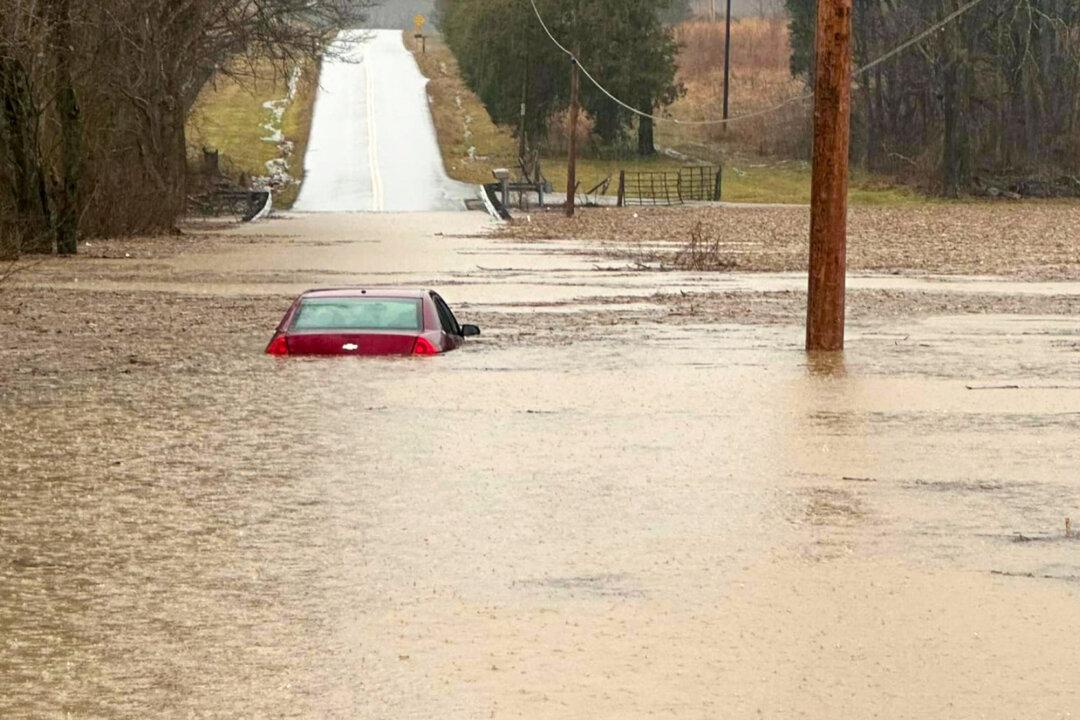Large portions of the United States were hit by wild winter weather on Feb. 16, with torrential downpours flooding Kentucky and killing at least nine in the Southeast. Tornado watches were issued for parts of Florida and Georgia, while the northern Plains faced frigid temperatures.
Two deaths involved a mother and her 7-year-old child when flood waters swept away their car in Hart County, Kentucky, near Interstate 65, a county official told WBKO-TV. Hart County Coroner Tony Roberts said they died on the evening of Feb. 15 in the Bonnieville community.





